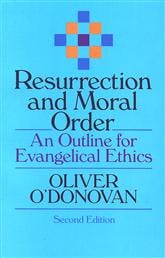Alasdair MacIntyre is widely credited with restoring the category of ‘story’ or ‘narrative’ to the forefront of the discussion in meta-ethics. In his influential work After Virtue (1981) he set out his argument for the bankruptcy of most modern ethical theories such as utilarianism and Rawlsian contractarianism and the necessity of recovering an Aristotelian-Thomistic virtue-ethics set within a narrative framework. Among other things, MacIntyre argues that the virtues, those moral practices and habits that characterize the just person, only make sense within a narrative framework because all human action is essentially historical in character–it is historically-enacted and historically-motivated. That is an inescapable feature of human life–whether pagan, post-Enlightenment liberal, or orthodox Christian, we live out of the stories and narratives we tell ourselves. Even the most postmodern among us, suspicious of the various master narratives told to us by modernity, are still living in the sort of story that includes moderns trying to control us through master narratives. Indeed, it is commonly suggested by philosophers and sociologists that instead of the idea of the “worldview”, a narrative-identity is a more useful conception for understanding the comprehensive perspective through which we approach moral action in the world.
Now, none of this is all that new. Why bring it up? Simply to introduce a few loosely-connected notes on the importance of narrative for Christian reflection on the moral life that ought to be kept in mind. One is cautionary, the other couple are complementary and, after thinking on them, can be classified under the rubric of Creation, Sin, and Redemption.
The Story is About Something (Creation) – First the caution. Oliver O’Donovan alerts us against the sort of historicisms which take this emphasis on narrative and history to the point of forgetting that the story is about something. These types of approaches take MacIntyre’s point and run with it to a degree that essentially denies the category of ‘nature’ or creation as a relevant one for moral reflection at all. One thinks either of Hegelian historicisms, or even the biblical theology movement with its emphasis on the history God’s mighty acts, as opposed to the pagan gods of nature. Of such schools O’Donovan writes:
We cannot object to the idea that history should be taken seriously. A Christian response to historicism will wish to make precisely the opposite point: when history is made the categorical matrix for all meaning and value, it cannot be then taken seriously as history. A story has to be a story about something; but when everything is a story there is nothing for the story to be about. –Resurrection and the Moral Order: An Outline For Evangelical Ethics, 2nd Ed. pg. 60
O’Donovan points us to the reality that creation, as a whole and in human natures as created, is the necessary pre-requisite for history as the stage of moral action–it is the set-up. Unless the human being is a certain sort of thing before the action, and the world is a certain kind of place, the things that happen within it lose their meaning. Without creation as the “theater of God’s glory”, to use Calvin’s phrase, there can be no drama of redemption. In other words, protology matters for eschatological ethics. Observed from a different angle, we must not forget that part of the story that the Scripture tells begins with a good Creator God, whose first ‘mighty act’ was to sovereignly make the world, and those things in it, in a particular way, for good reasons. The defacing effects of sin aside, moral reflection needs to attend to that fact before running ahead to the second or third acts of the drama and drawing our ethics entirely from the NT. It also means we know enough to say something substantial about the moral nature of things before the final act is concluded.
You Are Not the Only, or Main, Author/Character (Sin)
Login to read more
Sign in or create a free account to access Subscriber-only content.
Topics:
